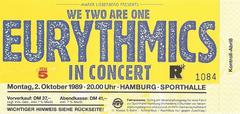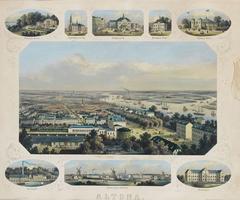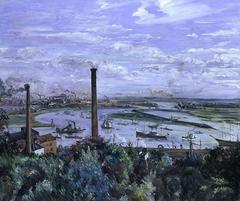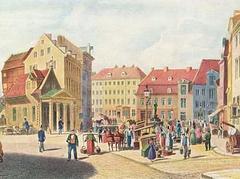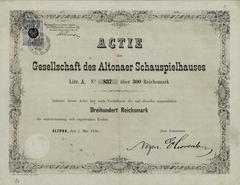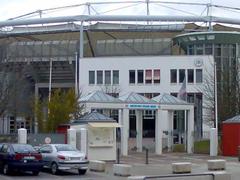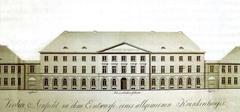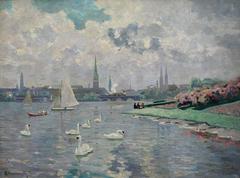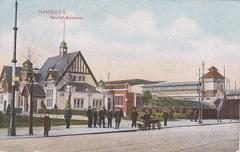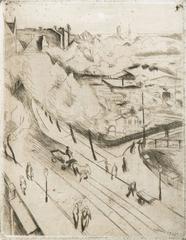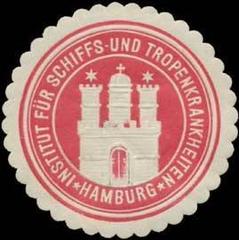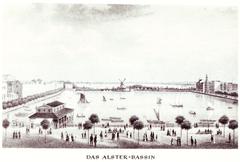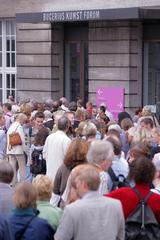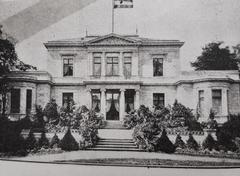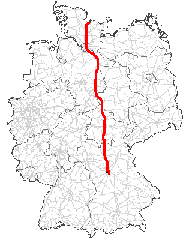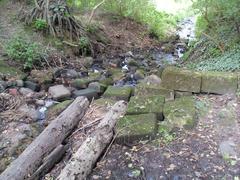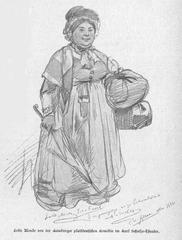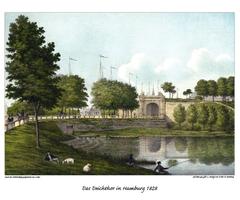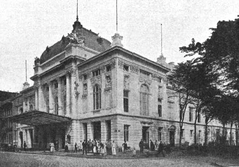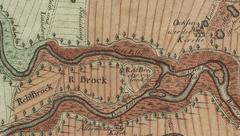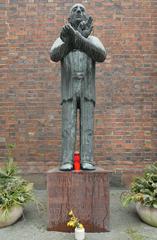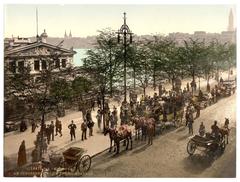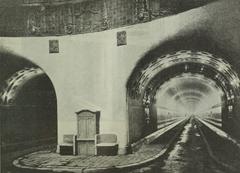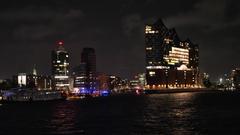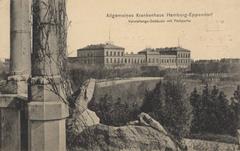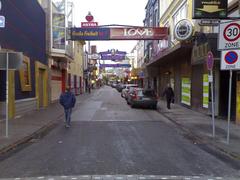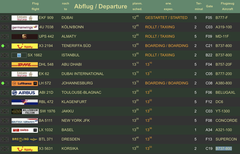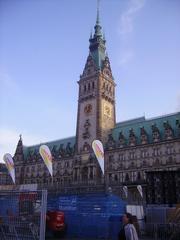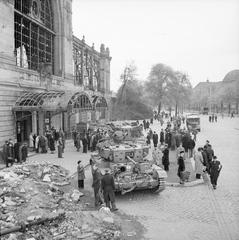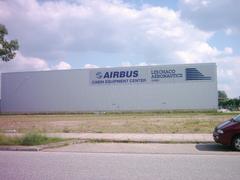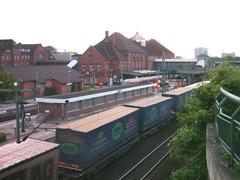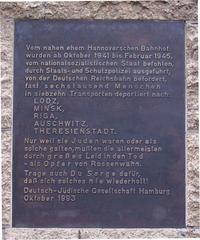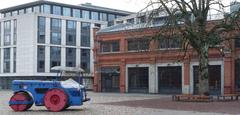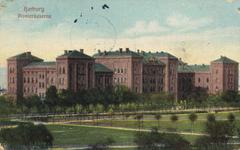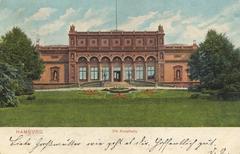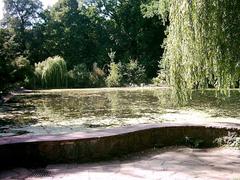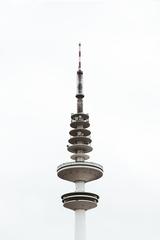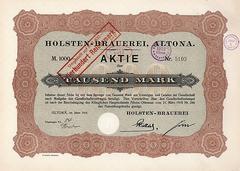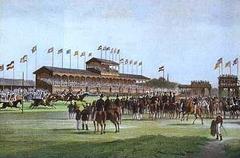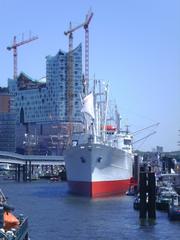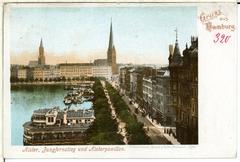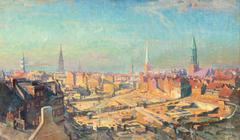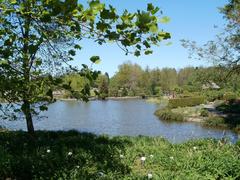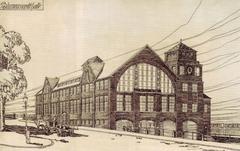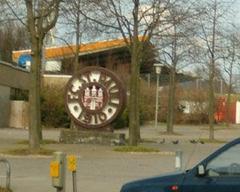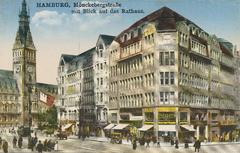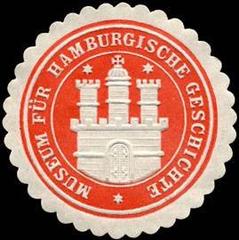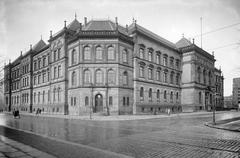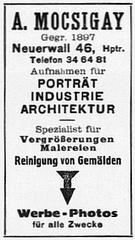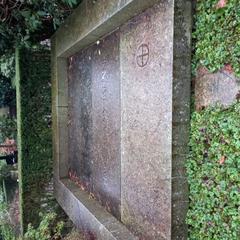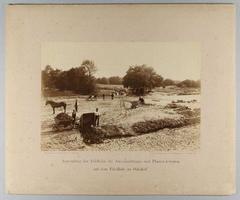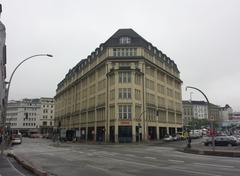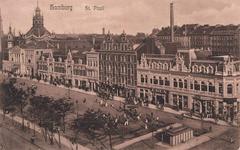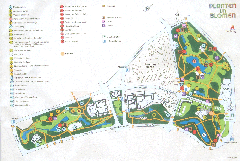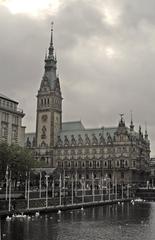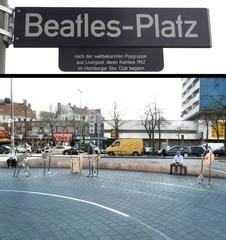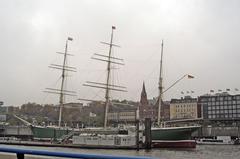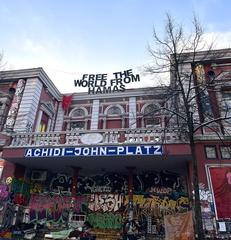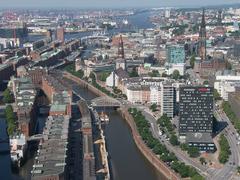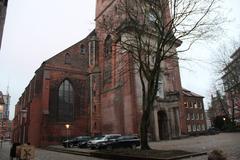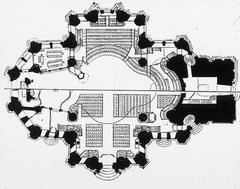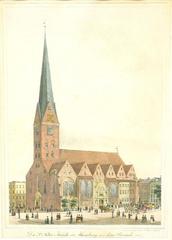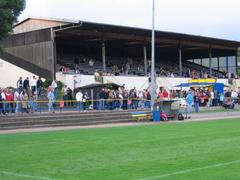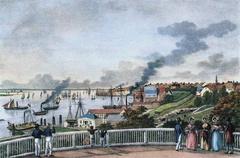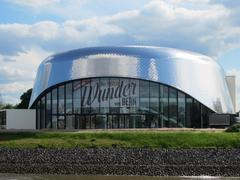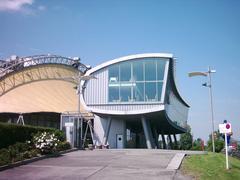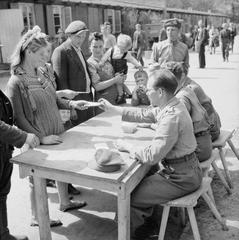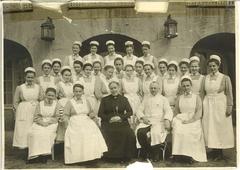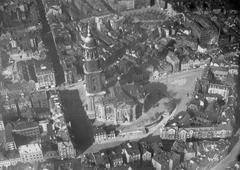Fuhlsbüttel Hamburg: Visiting Hours, Tickets, and Historical Sites Guide
Date: 04/07/2025
Introduction to Fuhlsbüttel: Hamburg’s Gateway of History and Culture
Fuhlsbüttel, in Hamburg’s northern quarter, is both a vibrant urban district and a place of deep historical resonance. Internationally recognized as the location of Hamburg Airport—Germany’s oldest operational airport—Fuhlsbüttel is a key gateway for visitors to the city and northern Germany. Yet, beyond its modern transport hub, Fuhlsbüttel’s past is marked by pivotal events, including its role during the Nazi era as the site of a notorious prison and concentration camp, known as “Kola-Fu.” Today, these sites serve as powerful memorials, inviting reflection and education about political repression and human rights abuses.
Alongside its historical landmarks, Fuhlsbüttel offers a lively community spirit, showcased in places like the Wochenmarkt Fuhlsbüttel (weekly market), green public spaces, and local cafés. Excellent public transport via Hamburg’s U- and S-Bahn systems ensures easy access, while ongoing urban development emphasizes sustainability, accessibility, and inclusive community planning.
This comprehensive guide provides everything you need to know about visiting Fuhlsbüttel—covering historical sites, visiting hours, ticketing, tours, accessibility, nearby attractions, and tips for an enriching experience. For the latest information and updates, always consult the Fuhlsbüttel Memorial Official Website and Hamburg Travel.
Table of Contents
- Introduction
- History of Fuhlsbüttel
- Visiting the Fuhlsbüttel Memorial
- Transportation and Getting There
- Local Culture: Markets & Community Life
- Urban Development & Future Outlook
- Nearby Attractions
- Visitor Tips & FAQs
- Conclusion
- References & Useful Links
History of Fuhlsbüttel
Early Origins and Urban Development
The origins of Fuhlsbüttel trace back to the Middle Ages, its name reflecting the marshland terrain along the Alster River. Traditionally a rural settlement focused on agriculture, Fuhlsbüttel was integrated into Hamburg’s urban landscape during the city’s industrial expansion in the late 19th and early 20th centuries. Today, it combines historical character with modern infrastructure and residential charm (Wikipedia: Fuhlsbüttel).
Fuhlsbüttel Prison and the Kola-Fu Camp
Erected in 1879, Fuhlsbüttel prison became a dark symbol of political repression when, in September 1933, it was repurposed as a concentration camp (“Kola-Fu”—Konzentrationslager Fuhlsbüttel). Under the Nazi regime, the site detained and tortured political opponents, including Communists, Social Democrats, trade unionists, and other resistance figures. The camp also later imprisoned Jews, LGBTQ+ individuals, and other targeted groups. The stories of these prisoners are central to Hamburg’s 20th-century history (Neuengamme Memorial - Fuhlsbüttel).
After WWII, the prison resumed standard operations, but the memory of its role during the Nazi era remains preserved and honored in the Fuhlsbüttel Memorial (Fuhlsbüttel Memorial Official Website).
Visiting the Fuhlsbüttel Memorial
Visiting Hours and Ticket Information
- Opening Hours: Tuesday to Sunday, 10:00 AM to 5:00 PM
- Closed: Mondays and public holidays
- Admission: Free
For guided tours or group visits, advance booking is recommended via the official website.
Guided Tours and Educational Programs
The memorial offers guided tours led by historians, providing in-depth context and personal stories of former prisoners. Tours and educational workshops (available in German and English) are available by prior arrangement and are especially popular on remembrance days. Interactive exhibits, photographs, original documents, and video presentations help visitors understand the camp’s historical significance.
Accessibility
The site is fully accessible, with barrier-free entries, ramps, and accessible restrooms. Audio guides and informational materials are provided in multiple languages and accessible formats.
Transportation and Getting There
Fuhlsbüttel is easily reached via Hamburg’s public transport:
- S-Bahn: Line S1 to Fuhlsbüttel Nord station (10-minute walk to the memorial)
- U-Bahn: U1 to Fuhlsbüttel station, connecting to local buses
- Bus: Multiple lines serve the area; check Hamburg.com for schedules
- By Car: Limited parking; public transport is recommended
Local Culture: Markets & Community Life
Wochenmarkt Fuhlsbüttel (Weekly Market)
Held every Saturday at Ratsmühlendamm 37 (11:00 AM – 5:00 PM), the Wochenmarkt Fuhlsbüttel is a lively market offering fresh produce, regional specialties, flowers, and artisanal goods (Wochenmarkt Event). The market is a focal point for the local community and a great place for visitors to experience Hamburg’s culinary culture.
Community Life and Events
Beyond the market, Fuhlsbüttel hosts seasonal street fairs, open-air concerts, and participates in citywide festivities such as the Hamburg DOM funfair. Parks, playgrounds, and green corridors make the district family-friendly and ideal for leisurely strolls.
Urban Development & Future Outlook
Fuhlsbüttel is undergoing significant urban development under the “Stadtteilentwicklungskonzept Fuhlsbüttel 2040,” focusing on:
- Affordable and sustainable housing
- Enhanced mobility: cycling lanes, pedestrian pathways, and improved public transport
- Green infrastructure: interconnected parks and climate adaptation measures
- Community and social facilities: schools, healthcare, and cultural venues
Find more about these plans at the Fuhlsbüttel District Development Concept 2040.
Nearby Attractions
Fuhlsbüttel’s excellent transport links make it a perfect base for exploring Hamburg’s highlights:
- Hamburg Airport: Germany’s oldest operational airport, with modern amenities and direct city connections
- Hamburg Stadtpark and Planetarium: Expansive parkland and one of Europe’s leading planetariums
- Speicherstadt: UNESCO-listed warehouse district
- St. Michael’s Church: Iconic baroque church with panoramic city views
- Elbphilharmonie: Renowned concert hall
- Neuengamme Concentration Camp Memorial: Major WWII memorial just a short journey from Fuhlsbüttel
Visitor Tips & FAQs
Q: What are the Fuhlsbüttel Memorial’s visiting hours?
A: Tuesday to Sunday, 10:00 AM to 5:00 PM. Closed Mondays and public holidays.
Q: Is admission to the memorial free?
A: Yes, entry is free.
Q: Are guided tours available in English?
A: Yes, but book in advance on the official website.
Q: Is the district suitable for families and accessible for those with disabilities?
A: Absolutely. Fuhlsbüttel is family-friendly, with accessible public spaces and facilities.
Q: How do I get from Fuhlsbüttel to central Hamburg?
A: S-Bahn S1 reaches the city center in about 25 minutes.
Q: Can I visit with children?
A: Yes, but discretion is advised due to the sensitive nature of the memorial exhibits.
Q: Are there markets or local events to enjoy?
A: The weekly market on Saturdays and various seasonal events are open to visitors.
Conclusion
Fuhlsbüttel stands as a testament to Hamburg’s complex past and dynamic present. From its moving memorials and aviation heritage to its lively markets and green spaces, the district offers a rich experience for every visitor. Whether you seek historical reflection, local culture, or a convenient base for exploring Hamburg, Fuhlsbüttel welcomes you with openness and accessibility.
For up-to-date guides, event information, and personalized itineraries, download the Audiala app and follow official platforms. Plan your visit to Fuhlsbüttel today and discover one of Hamburg’s most significant and welcoming districts.
References and Useful Links
- Neuengamme Memorial - Fuhlsbüttel
- Fuhlsbüttel Memorial Official Website
- Wikipedia: Fuhlsbüttel
- Hamburg.com
- Hamburg Travel
- Wochenmarkt Fuhlsbüttel Event
- Fuhlsbüttel District Development Concept 2040
